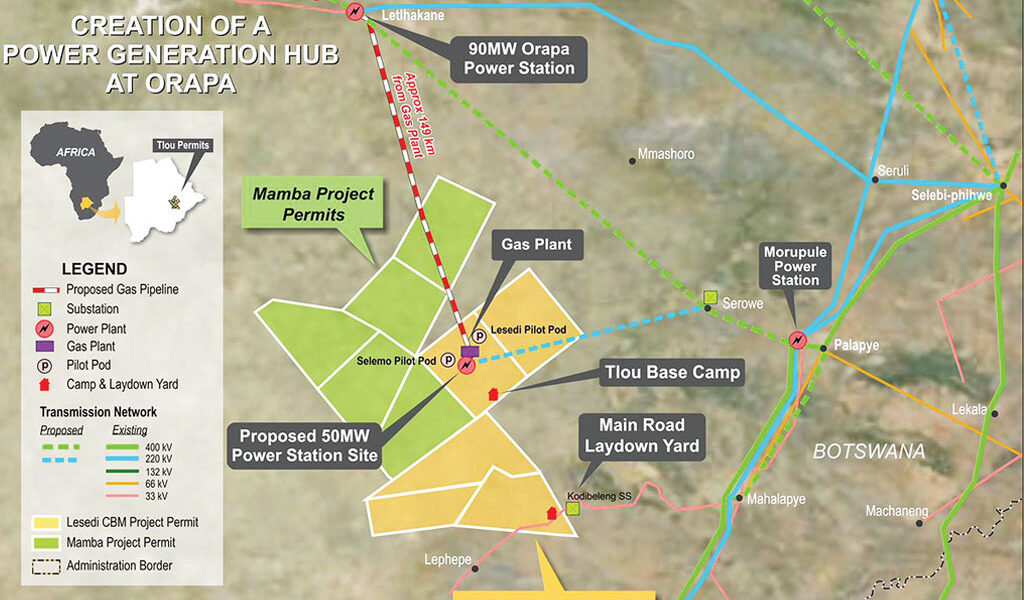TSHIAMO TABANE
The Brisbane energy company which has announced its intentions to construct 300 Mega Watts (MW) and 100 MW first coal-gas power stations in this country is optimistic that the envisaged power plants are ideal to supply power to Southern Africa.
In the recent project update, the company, Tlou Energy noted that there is still a huge market for power, due to the chronic energy shortage locally and regionally.
Recent figures from Botswana Power Corporation show that with an installed capacity of 61, 859 MW, Southern Africa produce a total of 46, 910 MW, against a demand of 55, 579 MW. The region has a total power deficit of 8, 669 MW and South Africa has the highest shortfall of 5, 994 MW, followed by DRC and Zambia with a shortfall of 441MW, Namibia (366 MW), Botswana (288 MW), Zimbabwe (263 MW), Tanzania (247 MW), Mozambique (243 MW), Swaziland (205 MW), Lesotho (102 MW), Angola (57 MW) and Malawi (22 MW). Botswana’s demand for power is expected to increase by 37 percent to 1,017 Mega Watt by 2025, according to the statistics.
Tlou Energy has indicated that energy crisis continues to be a major impediment to economic growth in developing markets, and Africa is now looking forward to unlock the potential of coal bed methane (CBM) due to cost advantages and the energy crisis. “Botswana government has this year announced that CBM will be included as part of the plans to deal with the country’s power deficiency and Tlou energy intends to collect CBM gas from its projects, process the natural gas and use it to generate power at the planned 300 MW and 50 MW power plants to be constructed in Orapa and Mmashoro respectively. The company also intends to supply gas to 90 MW diesel-power station in Orapa,” said Tlou Energy Managing Director Gabaake Gabaake.
The company has 10 CBM gas prospecting licences covering an area of 8,300 square kilometer and has so far discovered 3.3 trillion cubic feet of coal bed methane gas trapped in coal deposits 25 km west of Serowe, according to Gabaake. “There is an immediate and longer term opportunity to use the domestic gas to produce power and displace the expensive diesel and import market.”
He noted that Tlou Energy has a long-term vision to become a mid‐tier energy provider in Southern Africa and will deliver power firstly in-country and then regionally: “The first planned gas-to-power solution is expected to be delivered through a scalable project with the Botswana Government as off-take partner. Following successful implementation of this project the company plans larger projects to provide further power to Botswana and the southern African region.”
Tlou Energy Board Chairperson Martin McIver has stated that Lesedi pilot power project provides the company with an ideal platform from which to commence the process. “Over the next 12‐24 months, we will be making steps towards the successful commissioning of a 10MW pilot plant at Lesedi. The project, once commissioned will allow the company to generate revenue and importantly will demonstrate the commerciality of producing power from locally produced CBM, providing a platform for expansion of the project.”
The company is still negotiating with its development partners, the timing, power pricing and funding for construction of the power stations and a 150-km pipeline to transport gas from Lesedi gas project. It has been estimated that the development of the pipeline and the proposed power stations could cost around P1 billion.

